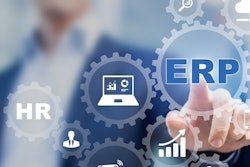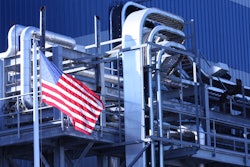Many manufacturers with healthy businesses, strong customer relationships and advanced technology on the plant floor are nonetheless stuck in the past when it comes to their ERP systems. And they may not fully realize the risks of relying on outdated systems to help monitor and manage their materials and finances.
Manufacturers must devote significant time and effort to maintaining on-premises ERP systems. Additionally, even a temporary failure of an on-premises system can disrupt a business in consequential ways. As a result, older ERP systems no longer serve as viable, long-term solutions for manufacturers. Further, as technology companies continue to phase out old products, manufacturers risk losing vital tech support if they continue to put off upgrading. The good news is ERP systems have experienced rapid innovation over the last decade as technology companies invested billions to improve their capabilities. Manufacturers using outdated systems are missing out on advanced capabilities and therefore putting themselves at a competitive disadvantage.
Manufacturing leaders will never be able to realize their growth goals if they remain saddled with outdated technology. Therefore, these leaders need to work proactively to embrace the next era of ERP and position their organizations for a future of success.
Reap the Benefits of the Cloud
Most modern, advanced ERP systems are cloud-based, which allows manufacturers to optimize their deployment of resources and improve operational efficiency.
Manufacturers are constantly looking to do more with less as they seek bottom-line growth, and cloud ERP can help in significant ways. Since updates happen automatically in the cloud, a manufacturer no longer needs to devote significant resources to supporting the system. This allows the company to reassign the employees that spent outsized amounts of time maintaining and troubleshooting an on-premises ERP system to more valuable and customer-focused tasks. Further, advanced tools within these ERP systems enable employees to complete tasks quicker and be more responsive to customer needs. A manufacturer can also more easily expand its business without labor-intensive on-premises technology installations at new locations.
Additionally, these modern ERP systems provide company leaders with immediate access to up-to-date and actionable business insights. Manufacturing executives can use these real-time snapshots of their businesses to be nimbler in their decision-making, more responsive to changing circumstances as they chart company strategy, and more proactive about confronting emerging challenges.
To realize and sustain growth, manufacturers also need to attract top talent — and this is a tougher task than ever before. Manufacturers that continue to rely on outdated technology will only make it harder on themselves. The cutting-edge technology and advanced, user-friendly tools in cloud-based ERP systems will be an asset as manufacturers seek to recruit smart, young employees. For example, advanced ERP systems facilitate mobility so users can access the system on any device, in any location, at any time. This maximizes productivity by providing users ongoing access to critical data. Mobility features will also appeal to the talented prospective employees who use mobile technology on a daily basis.
Another key factor that business leaders can’t afford to overlook is the role a company’s technology footing plays in determining its value. Therefore, it is crucial that a small or midsized manufacturer that may be in a position to merge with a peer or be acquired by a larger industry player has advanced and secure technology throughout the organization. A potential acquiring company would likely hesitate to buy a manufacturer that requires a complete technology overhaul. By proactively adopting cloud ERP today, a manufacturer will put itself in a better position to maximize value in a future merger or acquisition.
Take the Next Step
The most successful ERP projects enjoy executive support and leadership. By championing the project to the organization, company leaders can help drive the success of the initiative and ensure organization-wide buy-in.
With this executive support in place, a manufacturer can begin the process of transitioning to a cloud-based ERP system by assessing its current systems and business processes. This assessment should include taking inventory of the vital functions for the business, as well as potential future needs. A company should consider any planned organizational growth and operations it wishes to streamline. By documenting and prioritizing requirements, the manufacturer can ensure it chooses the best ERP system for its needs.
Once it selects a system, the manufacturer needs to transition data from the old system to the new. A technology partner steeped in the manufacturing space can ensure a successful migration of data. Additionally, this partner can help the company take advantage of the data migration process to improve operations. This can include automating workflows, adding alerts and escalations, and improving functional capabilities.
After a new system is in place, the manufacturer must train its employees. Fortunately, the intuitive interface of new ERP systems eases the training process. Still, it’s crucial that employees buy into the need for the new system and understand the benefits they and the company will realize. Many ERP implementations are upended by a lack of internal support. Therefore, company leaders need to thoughtfully plan and execute the training process. And it must go beyond simply instructing employees on tactical elements of the system. Instead, the company’s leaders need to ensure the entire team buys into the vision that led them to embrace cloud-based ERP.
Set Your Business up for Growth
Faced with many day-to-day challenges and priorities, it can be easy for a manufacturing leader to coast with an existing system that may be working adequately — at least for now. But to take a manufacturing operation to the next level, a leader needs to embrace advanced technology across the organization — and this must include advanced, cloud-based ERP. By replacing an outdated ERP system with a cloud-based platform, a manufacturer can reduce risks, improve performance and enhance the overall value of the business.
Greg Price is an enterprise account executive at Sikich.























